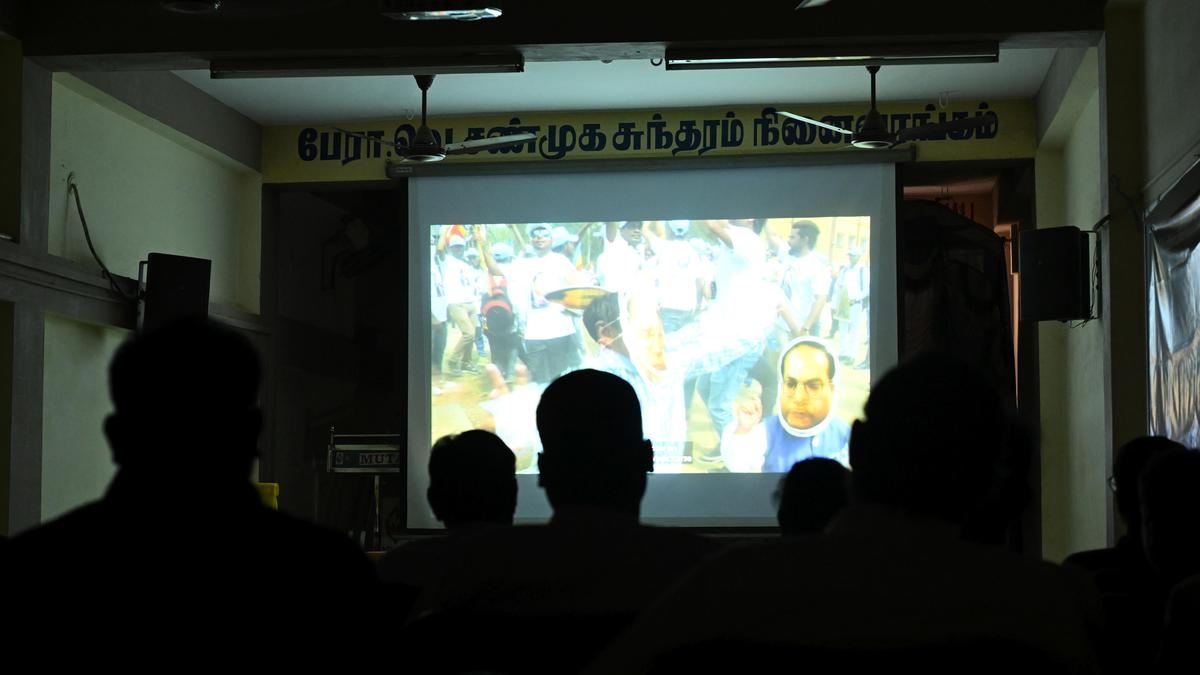
Madurai’s tryst with parallel cinema
The Hindu
Madurai, known primarily for its celebration of the superstar culture, has also been silently applauding and encouraging the films of real humans and their lives for nearly 26 years. The Madurai International Documentary and Short Film Festival — as part of which Dindigul Diaries was screened — took shape in 1998 when like-minded film enthusiasts and seekers of alternative cinema sat together to talk and chalk out plans to continue their disoriented, no-banner documentary screening in the city in a more streamlined fashion.
A handful of people — calm and content — exited a movie hall situated in a corner of Madurai city, after experiencing on screen the lives of four working-class women from a rural pocket in Dindigul, a district in southern Tamil Nadu. The sight was unlike any ordinary film screening in the city, which is usually loud, lively, and packed with people.
But this is not to say there weren’t any moments of passion during the screening: the audience, mostly from a working-class background, often found themselves getting emotional, resonating with the women on screen who narrated their stories through visuals from their everyday lives.
The film, a documentary, was called Dindigul Diaries. Directed by Annette Danto, it held up a mirror to the audience, showcasing an experience that paralleled their own pains and struggles.
Madurai, known primarily for its celebration of the superstar culture, has also been silently applauding and encouraging the films of real humans and their lives for nearly 26 years. The Madurai International Documentary and Short Film Festival — as part of which Dindigul Diaries was screened — took shape in 1998 when like-minded film enthusiasts and seekers of alternative cinema sat together to talk and chalk out plans to continue their disoriented, no-banner documentary screening in the city in a more streamlined fashion.
R.P. Amudhan, festival director and a documentary filmmaker himself, describes their idea of the documentary film festival as the beginning of a political discussion inspired by independent filmmakers like Anand Patwardhan, Deepa Dhanraj, K.P. Sasi, and Vasudha Joshi, among others. Aligning with their initial idea, the festival has breathed life into Madurai’s parallel cinema movement for more than two decades now.
In a place known for caste atrocities, female infanticide, and honour killings, the truth depicted in these documentaries might not be welcomed or appreciated by many. But it still counters the majoritarian narrative of pride and privilege, says one of the organisers of the film festival.
The women, who were present at the screening on a Sunday morning, spoke to the audience about the need for a system that protects them from an ‘exploitative’ patriarchal society and the ruling class.





















 Run 3 Space | Play Space Running Game
Run 3 Space | Play Space Running Game Traffic Jam 3D | Online Racing Game
Traffic Jam 3D | Online Racing Game Duck Hunt | Play Old Classic Game
Duck Hunt | Play Old Classic Game











